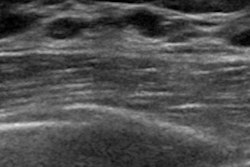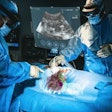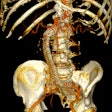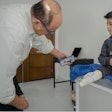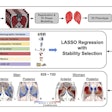Dear AuntMinnieEurope Member,
The ongoing shortage of radiologists in the U.K. is putting patients at risk and driving massive increases in outsourcing costs for the National Health Service (NHS), according to a report by the Royal College of Radiologists (RCR) that took center stage last week. Most imaging managers indicated there are simply not enough radiologists in the NHS to keep patients safe, according to the RCR.
In other news from the U.K., recent supply issues for choline have reportedly led to frequent postponements of PET/CT scans for patients suspected of having prostate cancer recurrence. Visit our Molecular Imaging Community.
Researchers from Switzerland have found that a deep-learning algorithm could produce comparable performance to experienced radiologists in classifying lesions on breast ultrasound. They believe that their deep convolutional neural network shows promise for mitigating reader variability and reducing unnecessary biopsies. Head over to the Women's Imaging Community.
An Israeli team has developed malware to draw attention to serious security weaknesses in medical imaging equipment and PACS networks. The malware's ability to add fake nodules to a CT scan or eliminate tumors from the scans highlights the need for improved cybersecurity standards, according to the group. Our report can be found in the Imaging Informatics Community.
German researchers have developed an artificial intelligence (AI) algorithm that can perform automated quantitative analysis of gliomas on MRI scans, providing accurate assessments of how these brain tumors are responding to treatment. In testing on a large multi-institutional dataset, their artificial neural network performed better than conventional measurements.
In other AI news, a group from Russia is once again working on a project to compare the performance of commercially developed AI software from different vendors. The team took a data sample from the Moscow Lung Cancer Screening Trial and visited 12 companies at ECR 2019 to assess the diagnostic accuracy of their software for lung nodules on CT scans.
Finally, the development of AI technology for radiology applications requires awareness of the ethical challenges that can arise during the training and use of these algorithms. Part 1 of a two-part series covering a talk by Dr. Adrian Brady at the European Society of Radiology's AI course in Barcelona, Spain, discusses key ethical issues such as data ownership, bias, and privacy.




